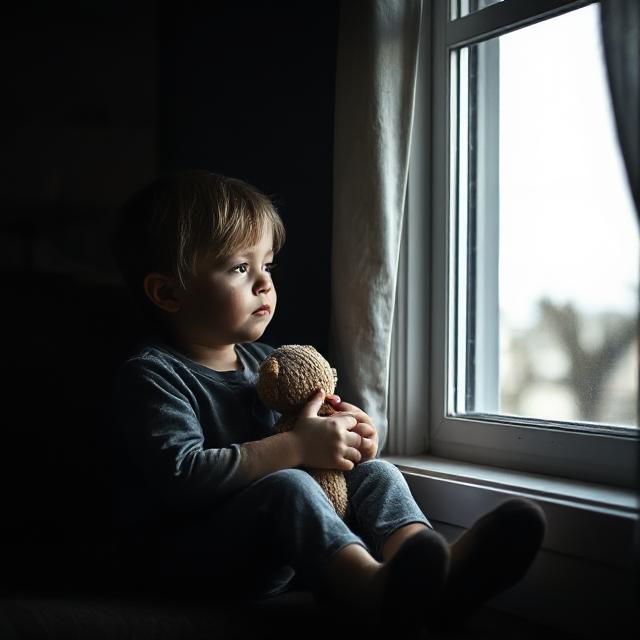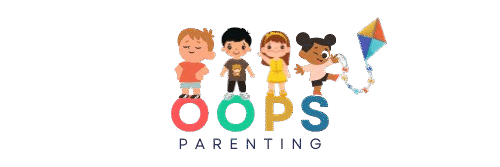
Many parents wonder about the signs of bad parenting, especially the subtle habits that might be hurting their children without realizing it.
If you’ve ever asked yourself,
Am I really a bad parent?
It’s a very common question especially after a rough day when nothing seems to be in your favor.
It’s completely reasonable to feel like you’re falling behind or that your parenting skills aren’t good enough.
However, despite all of this, trust me when I say:
If you’ve ever felt the way I just described, you’re probably not a bad parent.
The fact that you’re questioning yourself, that you’re feeling this guilt it means you care.Therefore, that alone proves you’re not heading down the wrong path intentionally.
So why do I still feel like I suck at parenting?
You may ask.
Well, the answer lies in that same question. You may not be doing anything wrong knowingly, but there might be small signs of bad parenting habits you might not notice which you’re doing unintentionally and those could be the real reason you feel this way.
Before we jump into those specific actions, let’s take a step back.
What really is bad parenting?
Is it stopping your kids from doing something fun?
Is it forcing them to do something that might help them long-term but makes them resent you in the short term?
Or is it something else entirely?
Since you’ve landed on this post, it’s my responsibility to help guide you toward some clarity.
Let’s break it down together.
There are some extreme signs of bad parenting that almost everyone would agree are completely unacceptable.
For example, things like physical abuse, neglect, emotional manipulation, or anything that makes a child feel unsafe or unloved.
If any of those are happening, it’s not just a “parenting issue” — it’s something that needs serious help, right away.
But let’s set those extreme cases aside for a second.
Because for most of us, the real question isn’t:
“Am I a monster?”
It’s more like:
“Could I be unintentionally doing things that are hurting my child without even realizing it?”
And the honest answer?
Yes — sometimes, we all do.
Even with the best intentions, small habits or reactions in the heat of the moment can have lasting effects. That doesn’t make you a bad person.It just means you’re human — and parenting is hard.
It’s important to remember this: Having a bad day doesn’t make you a bad parent.
There’s a big difference between “being a bad parent” and “having bad parenting moments.” We’ve all snapped. We’ve all said things we regret.
But learning from those moments — that’s what defines a good parent.
You don’t need to have all the answers. You just need to be willing to ask the questions.
Like the one you’re asking right now:
“Could I be doing something wrong without even knowing it?”
The truth is, yes… sometimes we all are.
Not because we’re bad.But because we’re human.
So let’s look at some of those quiet signs that sneak in when we’re tired, overwhelmed, or simply repeating patterns we saw growing up.
What Are the Signs of Bad Parenting?
It’s easy to picture “bad parenting” when you think about the extremes.
- Like a parent who hits their child.
- Or completely ignores them.
- Or uses fear and shame to get their way.
But the truth is, for most of us bad parenting doesn’t come from being cruel.
It sneaks in quietly through habits we didn’t even realize we picked up.
Understanding these signs of bad parenting can help you recognize and change habits before they cause harm.
Let’s break a few of those down.
1. Being Too Involved… or Not Involved Enough
Let’s be honest — there’s a fine line.
Some parents are completely hands-off. They feed their kid, keep a roof over their head, but that’s it. No conversations, no emotional check-ins, no presence.
Others are too hands-on. Doing everything for their kid. Fixing every mistake. Controlling every move. Meaning well but accidentally taking away their child’s chance to grow.
Going too far in either direction can be harmful.
What your child really needs is space to figure things out with the comfort of knowing you’re right there when it matters.
2. No Discipline… or Discipline That’s Too Harsh
According to a study by the American Psychological Association, inconsistent discipline and emotional unavailability are two major signs of harmful parenting patterns.
It’s tough, I know. Discipline feels like walking on a wire some days.
Some parents avoid it altogether — “I don’t want to be the bad guy.”
On the other hand, others go all in with rules so tight, it leaves no space to breathe.
But kids don’t just need love. They need boundaries.
Not punishments that scare them but consequences that make sense.
Not silence and shame but conversation and understanding.
Because at the end of the day, discipline isn’t about control,it’s about teaching.
Teaching that Help your child learn what’s okay, what’s not, and how to grow from their mistakes without losing your love in the process.
3. Withdrawing Affection to Teach a Lesson
This one’s harder to admit.
Sometimes we get so frustrated that we go cold. For instance, Silent treatment. Or, a cold shoulder. Sometimes we say, “Go to your room, I don’t want to see your face.”
We think we’re setting boundaries. But what our child feels is:
“You only love me when I behave.”
Love shouldn’t be a prize they have to earn.
It should be the one thing they can count on ,especially when they mess up.
4. Shaming (Even If It’s Unintentional)
It could be in public, or quietly at home.
“Why are you like this?”
“You always ruin everything.”
“Everyone else your age can do this.”
We don’t always mean it.Sometimes it slips out when we’re tired, burnt out, or trying to prove a point. But repeated shame doesn’t teach better behavior. It teaches self-hate. And it sticks deep.
5. You Don’t Show Them Your Flaws
We all want to be strong, patient, and calm for our kids all the time. But sometimes, when we mess up, it feels easier to just pretend it didn’t happen.
What if, instead, you gently said something like:
“I was feeling really frustrated earlier, and I shouldn’t have snapped. I’m sorry.”
Showing your child that you’re not perfect and you make mistakes and own up to them doesn’t make you less of a parent.
It helps build trust and teaches them that it’s okay to be imperfect, too.
Takeaway
Parenting isn’t about being perfect or never making mistakes. It’s about showing up, caring deeply, and trying to do better even when things get tough.
Sometimes, we don’t realize the small habits that might be holding us back or unintentionally hurting our kids. That’s normal — parenting is complicated and messy.
By learning to spot the signs of bad parenting, you’re taking an important step toward healthier family relationships.
What matters most is recognizing these patterns so they don’t become the norm. Because once you see them, you can start making changes.
Remember, feeling guilty or questioning yourself doesn’t mean you’re a bad parent. It means you’re human, and you’re trying.


